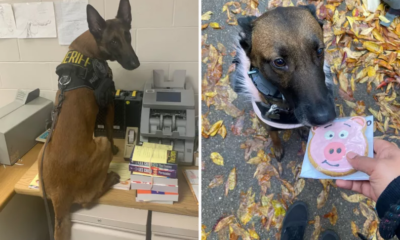Smile
Bacteria Offer Hope For Greener Plastic Solutions
Quick Smiles:
- Engineered bacteria turn plastic waste into useful medicine ingredients
- New method could reduce pollution and fossil fuel use
- Scientists are reimagining plastic as a valuable resource
Researchers in Scotland have uncovered an exciting breakthrough that could change how we think about both waste and medicine production. Using a type of engineered bacteria, scientists successfully transformed plastic bottles into a chemical needed for the popular painkiller acetaminophen, also known as paracetamol.
While still in its early stages, this innovation shines a light on promising ways to recycle plastics and produce important medicines in eco-friendly ways. Today, the majority of acetaminophen is made using fossil fuels, while plastic bottles often end up polluting our planet. The newly engineered bacteria, a modified version of common Escherichia coli, are helping to rewrite this story.
The scientists used a common plastic called polyethylene terephthalate (PET), found in many beverage and water bottles. The engineered bacteria were able to convert this plastic into para-aminobenzoic acid (PABA), which is essential for creating acetaminophen/panadol and even supports the production of folic acid (Vitamin B9).
Even more impressive, the process works at room temperature. Within 48 hours, 92% of the PET plastic was turned into PABA by the bacteria, efficiently recycling the plastic with no detectable carbon emissions. As a result, waste is reduced and valuable medical ingredients are produced without harming the environment.
“This work demonstrates that PET plastic isn’t just waste or a material destined to become more plastic, it can be transformed by microorganisms into valuable new products, including those with potential for treating disease,” shared Professor Stephen Wallace, one of the study’s leaders.
He added: “Based on what we’ve seen, it’s highly likely that many—or even most—bacteria can perform these kinds of transmutations. This opens up a whole new way of thinking about how we might use microbes as tiny chemical factories.”
This remarkable step hints at a future where plastic pollution can be sharply reduced and medicine produced more cleanly and sustainably—offering hope for both our environment and our health.

-

 Cute Animals2 years ago
Cute Animals2 years agoPuppy Love Patrol: Service Dog Swoons Over K9 Officer Neighbor
-

 Cute Animals3 years ago
Cute Animals3 years agoHugs, Hooves, and Happiness: Newborn Donkey Steals Hearts by Demanding Affection [Video]
-

 Cute Animals3 years ago
Cute Animals3 years agoWATCH: A German Shepherd’s Surprising Parenting Instinct for Lost Ducklings!
-

 Cute Animals3 years ago
Cute Animals3 years agoPetty Pup Pulls Off Hilarious Bone Heist [Video]
-

 Heroes2 years ago
Heroes2 years agoA Lost Dog’s Bark Leads to a Lifesaving Discovery
-

 Cute Animals3 years ago
Cute Animals3 years ago“Pure Love”: Adopted Rescue Dog Can’t Hide How Grateful He Is [Video]
-

 Cute Animals3 years ago
Cute Animals3 years agoTiny but Mighty: Cat with Dwarfism Becomes Internet Star as Owners Adapt Backyard for Her Comfort
-

 Cute Animals3 years ago
Cute Animals3 years agoAdorable Puppy Steals Hearts After a Tiring Swim [Video]